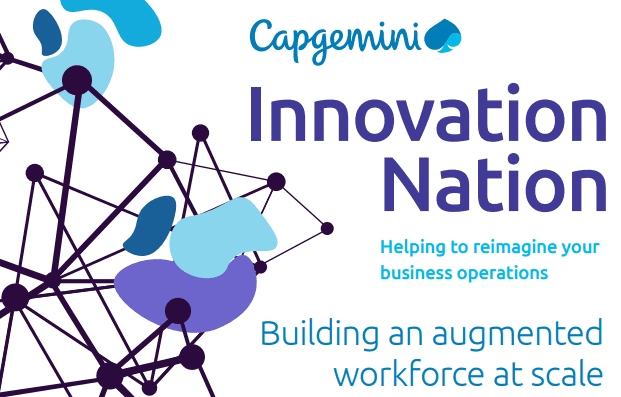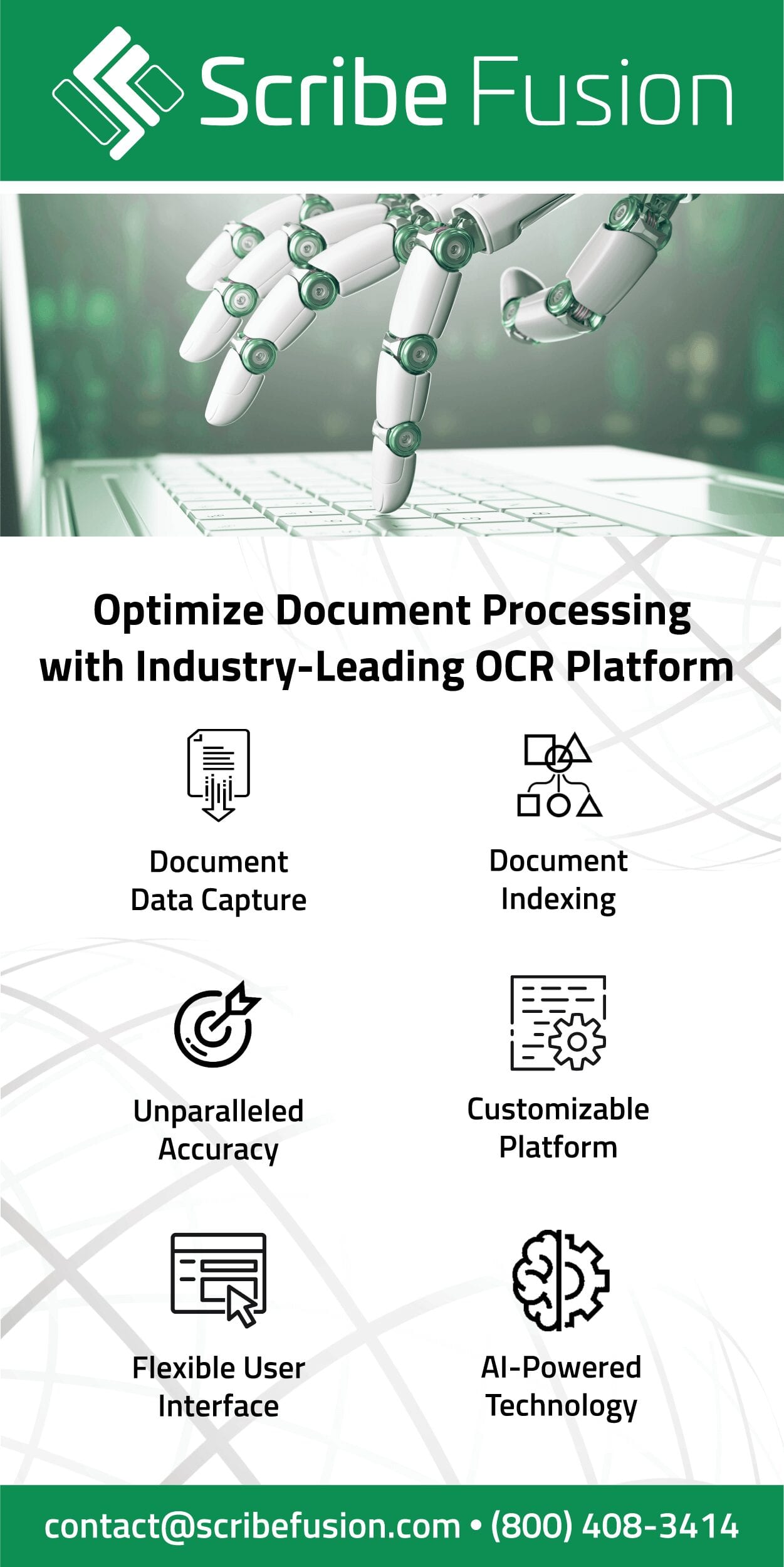How Intelligent Automation Can Help Achieve SLAs in Document-Driven Processes
By: Susanne Richter-Wills, Head of Enterprise Sales DACH at ABBYY

It’s a familiar scenario: Your organization is coming up on year-end and starting to feel the pressures of achieving your service level agreements (SLAs). Naturally, talks about improving over the previous year is driving the conversation, yet many are still trying to match resources to metrics for this year. In document-driven processes, advances in artificial intelligence (AI) technologies ensure that intelligent capture is improving data quality, but SLAs can go beyond that. Let’s take a look at how intelligent automation can help you to meet SLA while also improving margins.
[emaillocker id=26087]Intelligent Automation Solutions
Poor data quality from multiple input sources, especially mobile scan apps, has long been a burden on shared service centers (SSCs) and business process outsourcers (BPOs) that put a strain on SLAs and hinder the provision of higher-value services. The labor-intensive task of validating information then inputting and processing it into downstream systems rarely leaves room for healthy margins. However, combining intelligent automation technologies with micro-services to crowdsource data validation is a smart way to address these challenges.
For example, rental car dealers face the challenge of not being able to pass on fines and penalties incurred on a car to the customer. Rental agencies lose money because they are not able to tie toll and penalties fees to customer records in time.
Another example is the challenge auto insurance organizations have with year-end policy changes. In some countries, such as Germany, people can change policies once a year but only within a four-week window. Insurance companies conduct aggressive marketing campaigns to recruit new clients that increase requests for quotes up to 700 percent for some insurers. Unfortunately, their systems are not able to cope with the influx of inquiries. If insurers cannot improve their systems and answer potential customers within 48 hours, they risk losing customers to the competition, and the marketing efforts would have been wasted.
 In recent years these kinds of challenges were tackled with either outsourcing or automating capture that delivered good, but not great results. Challenges in data quality remain and the limiting factor has been to provide resources promptly to validate the data to enable further processing. SLAs often have still not been met. The time has come to look at additional tools to help tackle this kind of challenge – such as crowdsourcing of micro-services.
In recent years these kinds of challenges were tackled with either outsourcing or automating capture that delivered good, but not great results. Challenges in data quality remain and the limiting factor has been to provide resources promptly to validate the data to enable further processing. SLAs often have still not been met. The time has come to look at additional tools to help tackle this kind of challenge – such as crowdsourcing of micro-services.
Crowdsourcing Benefits
Gartner estimates that 20 percent of enterprise software application development will be crowdsourced, and data validation is a prime environment to apply this practice.
Currently, Shared Services Centers (SSCs) and BPOs offer 99.5 percent document automation but there is still a risk as even Optical Character Recognition (OCR) make mistakes. Knowledge workers are needed to validate data and ensure it is “clean” and ready for RPA digital workers and downstream processes. Yet, if you want to move up the process value chain, you can no longer afford to have people set aside to correct data.
Rather than the normal practice of recruiting people to scan documents in the morning then having another team correct data in the evening, there are micro-services available that work behind the scenes to accomplish these tasks quicker and more securely.
Micro-services combine artificial intelligence (AI) and human intelligence (HI) to source validation services to provide 100 percent clean data for further processing. Intelligent Automation solutions provide secure access to such micro-services and the ability to use these ad-hoc. By engaging in crowdsourcing for data validation you can deliver on time and budget.
Looking back at our previous insurance example, at a flip of a switch you could quickly (within a few hours) more than double the volume for validating data associated with insurance quotes without needing to scale people.
Or if we look at census projects that many countries are readying for, many government agencies are buying a service through a BPO. Using micro-services will make personal data secure, more accurate and speed projects up. Validation for such high-volume projects can be cut back to days or weeks instead of months.
Micro-services and crowdsourcing are a strategic solution that can augment BPOs, and illustrates the importance of combining human intelligence with AI.
The Importance of Process Intelligence
No production control is complete without end-to-end transparency. In the past, SLAs have focused on productivity and quality statistics. However, the impact of system breaks, such as exception handling and other anomalies, are often neglected. In a non-optimized operation, these exceptions account for 12 to 18 percent, and upwards to 35 percent in extreme cases, of overall time and cost to SSCs and BPOs.
Enhance your operations with process-oriented tools that make it possible to monitor the entire process – independent of the technology utilized to fulfill it. This can make bottlenecks instantly visible, help optimize processes on the fly, measure immediate impact and even predict the next steps within a process flow by observing past events.
Process intelligence, or what we refer to as process IQ, can be used within every aspect of intelligent automation workflows to monitor and address the performance of intelligent capture solutions, micro-services, content IQ skills and digital workers. This enables you to optimize staff with value-added duties rather than data validation and allows you to increase margins.
As you consider SLAs for 2020, strategically combine intelligent automation technologies with micro-services to crowdsourcing data validation. It is an opportunity for you to offer value-added services by combining content IQ, process IQ and human intelligence.[/emaillocker]
About the Author
 Susanne Richter-Wills has more than 20 years of experience in the process automation market and has held various senior management positions with international BPO providers, as well as product management positions with leading automation software vendors. She has an excellent understanding of the market and the need for companies today to implement intelligent data capture, AI/RPA and process automation solutions to stay competitive. Richter-Wills is a member of IAOP’s European Outsourcing Council where she supports the DACH, RPA and Digital Transformation activities.
Susanne Richter-Wills has more than 20 years of experience in the process automation market and has held various senior management positions with international BPO providers, as well as product management positions with leading automation software vendors. She has an excellent understanding of the market and the need for companies today to implement intelligent data capture, AI/RPA and process automation solutions to stay competitive. Richter-Wills is a member of IAOP’s European Outsourcing Council where she supports the DACH, RPA and Digital Transformation activities.







